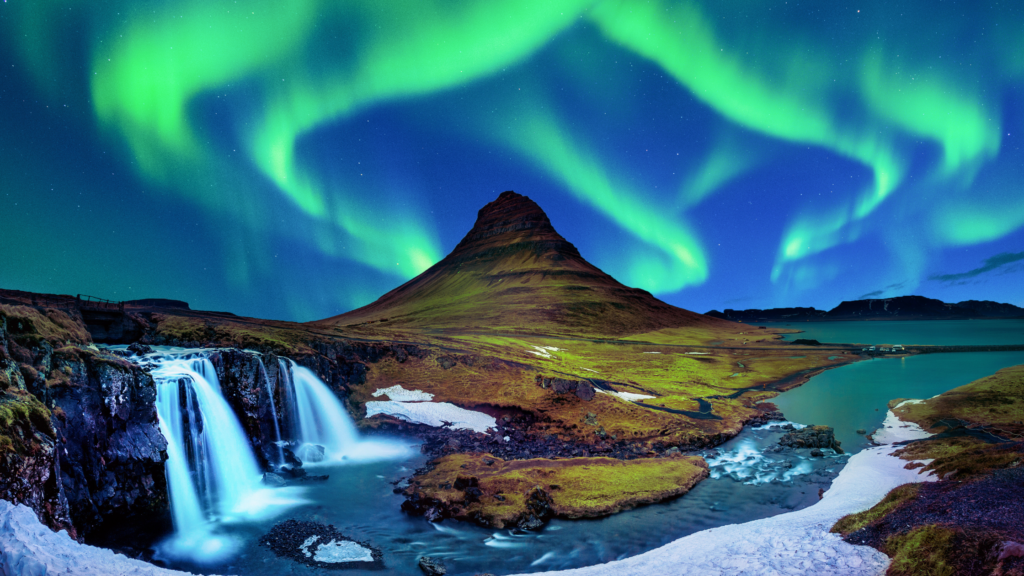
Anyone who has been following travel trends has no doubt seen Iceland growing in popularity – and for good reason. This country has so much to offer, from adventure to natural beauty to culture to cuisine. If you’re interested in experiencing Iceland for yourself but want to learn more, good news! Our partners at Iceland Encounter answer some of the most frequently asked questions about traveling to Iceland below.
What can you do in Iceland?
Iceland is all about nature exploration. There are many activities where you can get out and explore this beautiful country including:
- glacier adventures (glacier hiking, snowmobiling, zodiacs on glacier lagoons)
- spas and swimming (geothermal waters and natural hot springs)
- lots of hiking in diverse landscapes
- kayaking and river rafting
- whale watching
- salmon and trout fishing
- bird watching
- scuba diving and snorkeling
- horseback riding
- caving
- 4 x 4 expeditions
- mountain biking
- ATV and buggy tours
- photography
- sailing
- culinary tours and cooking classes
- Viking heritage
How cold is it in Iceland?
Although the name Iceland suggests frigid, below-freezing temperatures, this country is not the tundra many people imagine. During the winter months (November – March), the temperature is typically between 25 – 40°F. In the summer (June – August), temperatures range between 45 – 65°F.
What time of year should I go to Iceland?
Iceland is a year-round destination. People visit in the winter to see the Northern Lights and enjoy the winter scenery and in the summer to experience the long days, warmer weather, and access to the highlands. Travelers typically spend 5-7 days in Iceland in the winter and 6-9 days in the summer.
When can you see the Northern Lights in Iceland?
You can see the Northern Lights in Iceland from September to mid-April.
Will it be crowded in Iceland?
Iceland is one of the most sparsely populated countries in the world. It is about the size of New York state, but Iceland has a population of only 350,000 compared to New York’s nearly 10 million. And though Iceland may be on the rise in popularity for travel, it is still an emerging tourist destination. Compared to Ireland – which is one-third smaller than Iceland – Iceland gets about 2 million tourists per year while Ireland gets about 10 million.
When you travel with Iceland Encounter, their expert guides will help navigate around any crowded spots to make sure you spend your time experiencing the beauty of Iceland.
What should I pack for Iceland?
The weather in Iceland can change frequently, so it is important to be prepared for sudden shifts in temperatures, rain, and/or wind. Layers are always a good idea, so you can adjust to the weather throughout the day. Other essential items include:
- waterproof hiking boots or shoes (not your running shoes)
- warm socks
- rain pains and rain jacket in summer
- warm winter jacket and waterproof pants in winter
- hiking pants
- warm sweaters
- gloves
- warm hat
- swimsuit
- long underwear
- casual clothes for Reykjavik and evenings
- daypack
- sunglasses
- camera
How long should I spend in Iceland?
It is best to spend at least 5 days in Iceland, but ideally plan for an 8-day trip to Iceland to make the most of your trip.
What foods should I try in Iceland?
There are many foods to try in Iceland:
- Seafood: Iceland is know for wonderful, fresh seafood. Try the cod, arctic char, salmon and langoustine lobster
- Lamb: the Icelandic lamb is free-range and delicious. It is a national dish and smoked lamb is a traditional Christmas dish
- Skyr: it's a traditional low-fat, high-protein dairy dish, sometimes called a super food
- Pysla: the Icelandic lamb hot dog
- Rugbraud: dark rye bread. It is traditionally baked in a pot or steamed in special wooden casks which have been buried in the ground near a hot spring. It is crustless, brown, dense and a tad sweet. It is good with butter, smoked salmon, smoked lamb or pickled herring
- Icelandic ice cream: Icelanders are obsessed with ice cream year round!
- Kleina: the traditional Icelandic twisted doughnut
- Fermented shark: for those who dare!
- Brennivin: caraway-flavored schnapps that is considered Iceland's signature distilled beverage (sometimes referred to as Black Death)
- Fresh water from the tap: Icelandic drinking water is pure mountain spring water and is the best drinking water you can find! It is usually what Icelanders miss the most when they travel abroad
Who should visit Iceland?
Iceland is a great destination for many types of travelers. Nature lovers of all ages will appreciate the natural beauty and stunning landscape. Active travelers who like to be outside will love the many exciting activities. Families – especially those with children 10 and older – will enjoy bonding and creating memories in a stunning setting. And travelers who are into culture will like discovering Iceland’s unique history, music scene, thriving literary scene, gourmet cuisine, art, and more.
What unique experiences does Iceland Encounter offer?
Iceland Encounter offers more than the run-of-the-mill Iceland experiences. Their first-hand experience, on-the-ground connections, and passion for the country takes a trip to Iceland to the next level. From meeting the chefs of Reykjavik’s top restaurants to snorkeling between the tectonic plates to enjoying lunch in a secret, 1000+ year old Viking cave, Iceland Encounter shows you authentic and unique Iceland.
Ready to go? Click here to start planning your trip to iceland!

